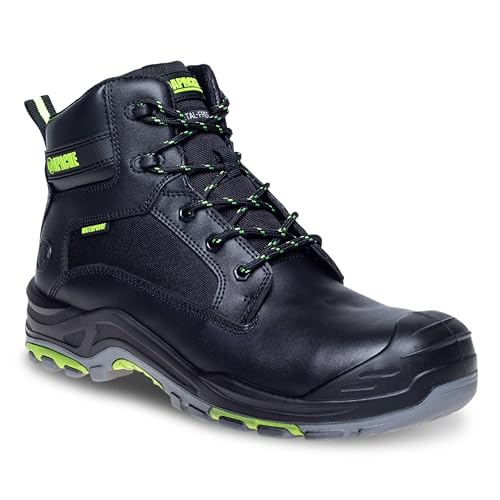Understanding Cut-Resistant Boots: A Quick Overview
What Are Cut-Resistant Boots?
Cut-resistant boots are specialised footwear designed to protect your feet from sharp objects or materials. Imagine you’re on a construction site or working with sharp tools; the last thing you want is to suffer from an injury caused by a falling object or a sharp edge. These boots feature materials that are tougher and can withstand cuts better than standard footwear. So, they are there to help protect you from workplace hazards.
Why You Need Them
If you work in environments where sharp objects are present, cut-resistant boots are essential. Picture working in a warehouse filled with heavy machinery or in an area with glass shards; without the right footwear, you’re at risk of serious injuries. Investing in these boots not only keeps you safe but also boosts your confidence to focus on the task at hand rather than worrying about your feet.
The Anatomy of Cut-Resistant Boots: Key Features to Look For
Material Matters
The resistance level of cut-resistant boots largely depends on the materials used. Look for boots made with advanced synthetic fibres such as Kevlar or Dyneema. These materials provide an impressive defence against cuts and abrasions while being lightweight and flexible, ensuring comfort throughout the day.
Non-Slip Soles
One essential feature to consider is the sole of the boots. Non-slip soles prevent accidents on slippery surfaces, which is crucial if you’re in a wet or oil-laden environment. A good grip on your footwear can make all the difference, minimising the chances of slipping and falling.
Comfort and Fit
Comfort should never be overlooked when selecting cut-resistant boots. A pair that fits well will enhance your productivity, especially if you’re on your feet for long periods. Look for options with cushioned insoles and breathable materials to keep your feet comfortable and sweat-free during your shift.
Choosing the Right Cut-Resistant Boots for Your Needs
Assessing Your Workspace
Before making a purchase, consider the hazards present in your workplace. For instance, if you handle sharp tools often, opt for boots with a higher cut-resistance rating. If your work involves intense physical activity, ensure the boots offer adequate support and flexibility for movement.
Checking the Standards
Look for boots that meet specific safety standards. These standards will give you an indication of how effective the boots are at protecting against cuts. Familiarising yourself with these ratings can guide you toward making a smarter purchase.
Best Use Scenarios: Where to Wear Cut-Resistant Boots
Construction Sites
Cut-resistant boots are ideal for construction workers who frequently encounter sharp objects. The added layer of protection can give you peace of mind while working on or around heavy materials and tools.
Manufacturing Facilities
In manufacturing settings where metal, glass, or other sharp materials are prevalent, these boots are highly beneficial. They not only protect your feet but also contribute to overall workplace safety.
Landscaping and Forestry
If you’re involved in landscaping or forestry, cut-resistant boots are crucial. You’ll be working with clippers and other sharp tools, and having reliable footwear can prevent injuries while you navigate rugged terrains.
Top Cut-Resistant Boots: Our Recommended Picks
Selecting Our Recommendations
When curating our top picks for cut-resistant boots, we’ve considered factors such as sturdiness, comfort, and user feedback. Each recommended boot offers unique features tailored to various needs, ensuring you find the right pair. While we won’t name specific brands, we’re confident our recommendations will suit different industries and requirements, helping you do your job safely and comfortably.
Final Considerations
Think about factors like budget, style, and any specific requirements your workplace might have. The right pair of cut-resistant boots will serve you well, providing safety and support as you tackle your daily tasks. We encourage you to choose a pair that best fits your activities, ensuring you stay protected while on the job.
























